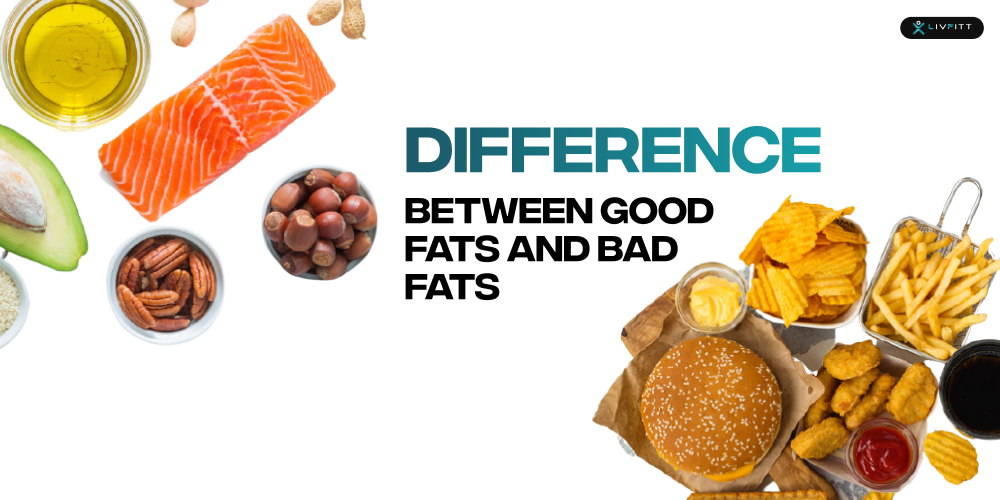
Difference between good fats and bad fats1
There are good fats:
monounsaturated and polyunsaturated fats, found in olive, rice bran, sunflower oils, flax seeds, nuts, fish and such. Then there are bad fats that are found in cheese, butter, red meat and the like.
So the key here is to choose foods that contain good fats, for example: Use a healthy plant-based oil to cook your food rather than vanaspati(hydrogenated oil) butter, that’s loaded with bad fats.
Choosing the right foods: 
For cooking, choose plant-based oils. Rice-bran, sunflower, peanut, and olive are some examples of heart-healthy cooking oils. They improve blood cholesterol levels and help cut the risk of heart disease.
Include omega-3 fatty acids in your diet:
Flax seeds, oily fish like salmon and mackerel, and walnuts contain this essential fatty acid that does wonders for your health. They can boost your heart health, and will also make your skin supple and soft.
Read food labels, and the ingredients list:
While buying processed food, choose foods that are low or are free of trans fats. Make sure you also check the ingredients list to see what type of oil has been used. Vanaspati (hydrogenated oil) is loaded with trans fat.
Steer away from processed foods:
Like biscuits, store-bought samosas and other fried foods that have been made using hydrogenated oil or butter, if you’re looking at eating healthy fats. Red meat eg Beef, pork mutton are high in saturated fat, you’ll do well to say ‘NO’, or at least eat only, occasionally. Cheese, butter, pizzas, French fries, chips, sweetmeats like ice cream, jalebis, and gulab jamuns are all rich in saturated fats. So make them an occasional treat. Walnuts, almonds, sunflower seeds, pumpkin seeds, flax seeds are good sources of healthy fats. Include them in your diet. Remember, the key here is moderation, don’t overindulge.

